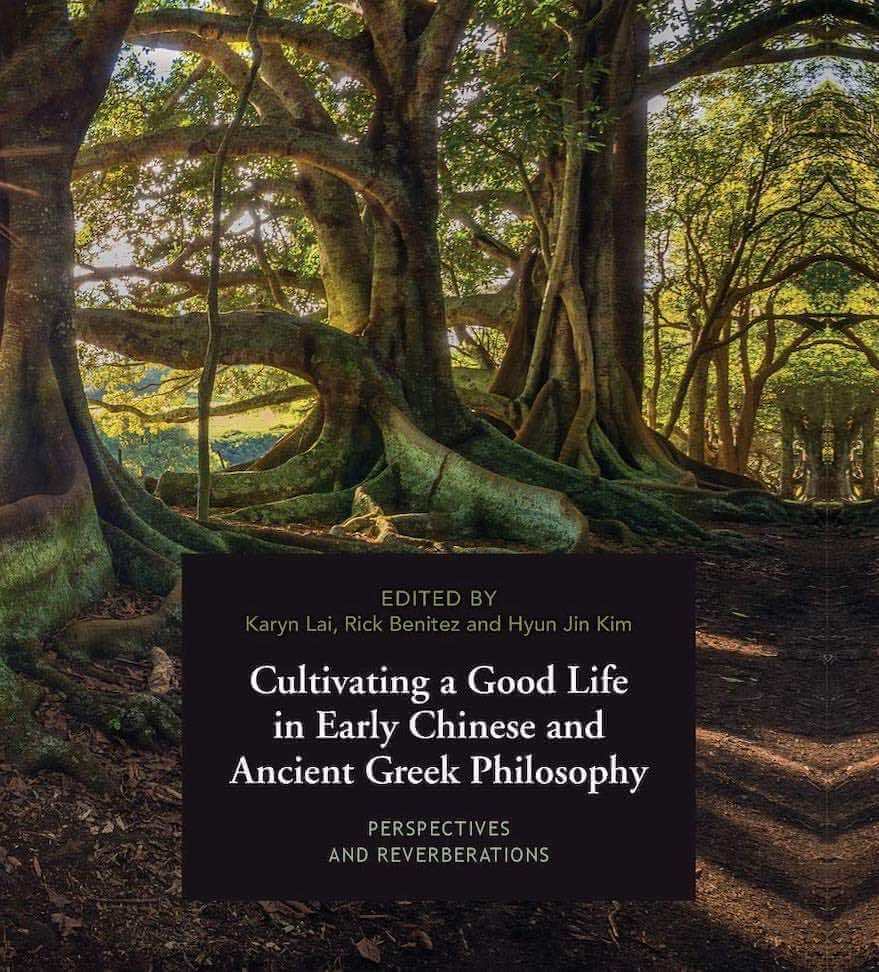Cultivating a Good Life in Early Chinese and Ancient Greek Philosophy

Publication information
- Title: Cultivating a Good Life in Early Chinese and Ancient Greek Philosophy
- Published by: Bloomsbury Academic (2018)
- Category: Contributor
- Buy the book!
I contributed a chapter on the brilliant Chinese thinker Liu Xie (劉勰) for this wonderful collection of essays edited by Karyn Lai, Rick Benitez and Hyun Jin Kim.
This book engages in cross-tradition scholarship, investigating the processes associated with cultivating or nurturing the self in order to live good lives.
Both Ancient Chinese and Greek philosophers provide accounts of the life lived well: a Confucian junzi, a Daoist sage and a Greek phronimos. By focusing on the processes rather than the aims of cultivating a good life, an international team of scholars investigate how a person develops and practices a way of life especially in these two traditions.
They look at what is involved in developing practical wisdom, exercising reason, cultivating equanimity and fostering reliability.
Drawing on the insights of thinkers including Plato, Confucius, Han Fei and Marcus Aurelius, they examine themes of harmony, balance and beauty, highlight the different concerns of scepticism across both traditions, and discuss action as an indispensable method of learning and, indeed, as constitutive of self.
The result is a valuable collection opening up new lines of inquiry in ethics, demonstrating the importance of philosophical ideas from across cultural traditions.
What Are People Saying?
Will Buckingham presents a challenging appraisal of the common Western view that writing is somehow necessarily related to suffering. In order to consider a different approach concerning writing and life, he draws upon the work of Liu Xie (5th–6th centuries CE) author of the Literary Mind and the Carving of Dragons. There follows a fascinating exploration of this work and its relationship to both Daoist and Confucian classics…'
— Reviews in Religion and Theology.
